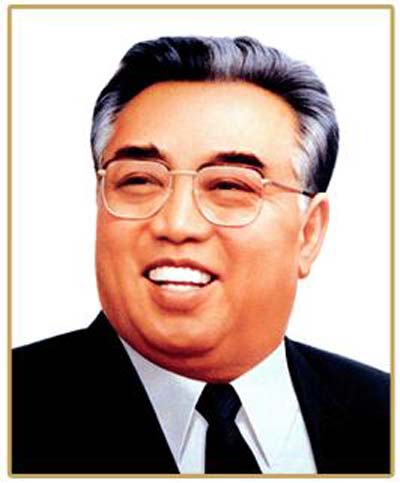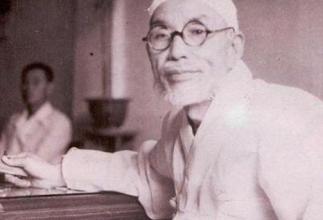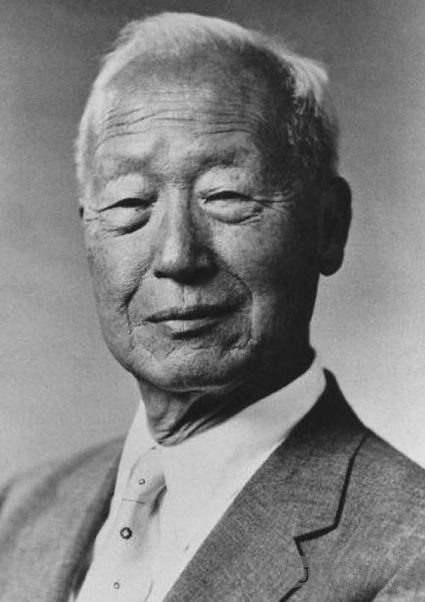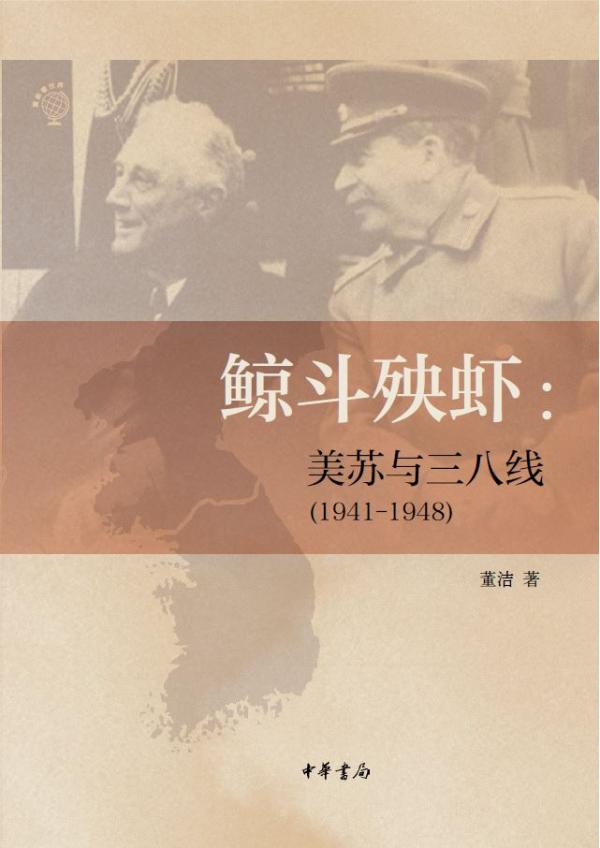After the recovery of the Korean peninsula, political parties and social organizations began to be formed in both the north and the south. Almost all political parties put their goals and tasks under the banner of independence and democracy, but their respective political goals and programs were not clear in the early days.
After the announcement of the agreement on North Korea at the Moscow Foreign Ministers’ Meeting, around the trusteeship system itself, the true features, true intentions and political purposes of these political parties began to be clearly defined, and the political forces in North Korea were divided into two camps: those in favor of trusteeship (Zantuo) and those against trusteeship (Anti-Tuotuo). Under the appearance of Zantuo and Anti-Tuotuo, the pro-Soviet and pro-American positions were corresponding.
Generally speaking, the situation in North Korea is relatively simple. Although there are voices against trusteeship, it is not enough to form a force and pose a threat to the Zanto camp. The political situation in North Korea is almost completely dominated by the Zanto camp. In contrast, the situation in South Korea is more complicated. The anti-Tuo camp and the Zantuo camp are in opposition, and there are divisions within each camp, so the politics in South Korea is divided.
North Korea unanimously supports the Moscow agreement.
On New Year’s Day in 1946, shortly after the announcement of the Moscow Agreement, Kim Il Sung, who had been elected as the first secretary of the communist party of North Korea, mentioned the significance of the Moscow Agreement to the cancellation of the 38th parallel in his New Year’s speech. On January 5th, at a lecture held by the North Korean Women’s League, Kim Il Sung publicly expressed his personal views on the Moscow Agreement for the first time. He believed that the Moscow Agreement could guarantee North Korea’s independence and protect it from fascist aggression, no matter from the international or domestic political situation, so he expressed active support for it.
Kim Il Sung also said that the United Nations has made it clear that it has no territorial ambitions for North Korea, and all those who oppose the Moscow agreement are pro-Japanese and national traitors, calling them people who undermine friendly relations with the Soviet Union. In an interview with reporters on February 28th, Kim Il Sung once again said that the Moscow Agreement opened the way for peace in the Far East and independence of North Korea. He asserted that the implementation of the Moscow Agreement could realize the development of democracy, independence, wipe out the remnants of Japanese imperialism and solve the problem of economic chaos. Therefore, the People’s Committee should make preparations for the formation of the government according to the Moscow agreement, actively analyze the true meaning of the agreement, and carry out the work of breaking the false propaganda of reactionaries. Kim Il Sung believes that the distortion and anti-propaganda of the Moscow agreement is the destruction of the United front, which prevents all the directions of democracy. At this time, Kim Il Sung has become the chairman of the Provisional People’s Committee of North Korea, and his position basically represents the attitude of most political parties in North Korea towards the Moscow Agreement.

Kim Il-sung
At the same time, mass activities in favor of hosting and maintaining the Moscow agreement have also been carried out in North Korea. On January 6th, a city-wide parade holding high the banner of solidarity with the Moscow resolution reached its climax in Pyongyang. The demonstrators held high the slogan "The Moscow resolution of the foreign ministers of the three countries can guarantee freedom, independence and the establishment of a democratic Korea". A radio report in Moscow on the 10th said: About 100,000 people took part in the demonstration and expressed their welcome to the decision of the Moscow meeting of foreign ministers of the three countries on North Korea. All the participants held the national flags of North Korea, the Soviet Union, Britain, China and the United States, and the portraits of Lenin, Stalin and Korean hero Cui Yongjian, and held up slogans to express their full support for the resolution of the Moscow meeting on North Korea, and the Korean people thanked the Red Army and its leader Marshal Stalin for their efforts to build a democratic North Korea. On January 29th, another mass demonstration was held in Sinuiju, and about 20,000 people took part in the demonstration. The masses held high the slogans and slogans welcoming the Moscow Conference resolution on North Korea. The demonstrators held a mass meeting in the central street, and eight representatives delivered speeches, warmly welcoming the resolution of the Moscow conference on North Korea and calling on the people of the whole country to use all their strength to restore the country’s economy.
Nevertheless, there were still anti-trust elements among North Korean politicians at that time. In the words of Shtykov, then head of the Soviet delegation to the United States-Soviet Joint Committee, there should be "hundreds". Cao Xizhi, chairman of the Democratic Party of Korea, who is deeply admired by the North Korean people, is one of them. After the Moscow agreement was announced, Cao Xizhi made it clear that he opposed trusteeship, claiming that "the trusteeship rule of traitorous countries is absolutely unacceptable". To this end, the Soviet Union has repeatedly softened and pressured him to publicly issue a statement supporting the decision of the three foreign ministers’ meeting in Moscow, but Cao Xizhi refused on the grounds that it should be decided by all the people and he could not make decisions at will. Cao Xizhi refused to cooperate with the Soviet Union, resolutely opposed the attitude of trusteeship, and finally let the Soviet Union decide to abandon him politically.
According to Shtykov’s later recollection, "When Cao Xizhi Group tried to express its opinions on the words and deeds of our representatives attending the Seoul meeting, I was forced to tell the activist to mind his own business. We seized this opportunity and thoroughly settled accounts with Cao Xizhi. " Shtykov immediately reported to Stalin that Cao Xizhi was disloyal to the Soviet policy and had a "nationalist tendency". He regarded the Soviet army in Korea as the same occupier as the Japanese. This made Stalin decide to replace Cao Xizhi. Shtykov recommended Kim Il Sung, who was only in his early thirties, lived in the Soviet Union and spoke fluent Russian. Stalin agreed and said, "North Korea is a young country and needs young leaders." The Soviet Union put Cao Xizhi under house arrest in order to stop her organized anti-trust movement. Soon, Cao Xizhi disappeared not only from the political stage, but also from Korean society. On February 24, 1946, the Democratic Party of Korea held its first congress and dissolved the former Central Committee. Cao Xizhi and his supporters who were absent from the meeting were expelled from the party. Cui Yongjian, Kim Il Sung’s former close comrade-in-arms in the Soviet camp and a member of the 88th Brigade, was elected as the new chairman of the Democratic Party. It can be seen that after the Moscow meeting, the Soviet side regarded whether it was in favor of trusteeship and whether it supported the Moscow agreement as a weather vane to test whether the political stance of North Korean political forces was pro-Soviet.

Cao wanzhi
In this context, the Civil Affairs Bureau of the Soviet Union has paid more attention to the propaganda and guidance related to the Moscow Agreement. On January 3, 1946, Ignacy Yev, who was in charge of political work in the Soviet Civil Affairs Bureau of Korea, held a meeting of North Korean newspaper editors and book inspectors, expounded the essence of the Moscow Agreement, and assigned practical tasks to the participants, namely, correctly publicizing the Moscow resolution to the residents through newspapers and periodicals, fighting pro-Japanese factions who tried to distort the spirit of the resolution, cultivating the trust of the Korean people in the Moscow resolution, and calling on the people to solve the current problems. All localities have taken active actions one after another. On January 18th, the Propaganda Department of communist party Municipal Committee of South Pyongan Province sent a propaganda team to the local area to "continue to strengthen the local residents’ understanding of the Moscow Conference resolution on North Korea". The political workers in garrison headquarters, Huanghai Road, will take it as their duty to explain the meaning of the Moscow Agreement to the leaders of local parties and state committees of people’s committees.
In any case, by the end of May 1946, after the first meeting of the United States-Soviet Joint Committee, compared with the complicated and divided situation in South Korea caused by anti-trust and anti-trust, "all political parties in North Korea supported the Moscow Resolution", including communist party, Democratic Party, New People’s Party, Tiandao Party, Women’s League, Democratic Youth League, Farmers’ League, trade unions and some other organizations, totaling about 50. North Korea unanimously supported the Moscow agreement on trusteeship.
"Second Munich": Protest from South Korea
At the beginning of the announcement of the Moscow Agreement, almost all Koreans in the south immediately protested strongly against the foreign ministers’ decisions. South Korean newspapers described the meeting as "the second Munich", and the main objection was the provisions on trusteeship. North Koreans argue that any trusteeship, no matter how short, means unnecessarily delaying the day when they can gain complete freedom and independence.
The Moscow Agreement had a great influence on the political development in South Korea, which caused the opposition between the anti-Tuo and Zantuo camps and led to the obvious polarization between the right and left political forces.
In the anti-trust camp, the right-wing political parties are active, among which there are three more important forces, namely, the provisional government of the Republic of Korea led by Jin Jiu (later reorganized into the Korean Independence Party with the decline of the authority and influence of the provisional government), the Central Agreement Council for Promoting Li Chengwan’s Independence (referred to as independence promotion) and the Korean People’s Party.
After the announcement of the Moscow Agreement, the interim government headed by Jin Jiu set up the National General Mobilization Committee against Trusteeship (hereinafter referred to as the Anti-Trusteeship Mobilization Committee). In their statement, they declared: "To strive for 5,000 years of sovereignty and 3 million freedoms, we must support our own political activities and exclude foreign trusteeship." On December 29, 1945, the anti-trust mobilization Committee formulated organizational regulations and was determined to launch a fierce anti-trust movement. The leftists and Rightists in the interim government all expressed their anti-trust ideas. Their plan at that time was to create an anti-trust atmosphere in an all-round way from the organization and form an anti-trust mobilization Committee to grasp the leading power of the political situation and further take over the military and political affairs.
As a veteran of the interim government, Li Chengwan did not participate in the anti-trust mobilization committee, but expressed his anti-trust proposition by organizing other political activities. As the United States has repeatedly stated its position of implementing trusteeship, Li Chengwan said that it had long expected this, so it had already prepared countermeasures. He made up his mind to follow his own prepared policy, emphasizing "don’t be lured by the so-called’ short five years’", and he advocated that the people of the whole nation should unite and strive for the sympathy of the United States, Britain and China. Li Chengwan’s idea is probably because he thinks that the implementation of the trusteeship system in North Korea is the insistence of the Soviet Union, but the United States, Britain and China are not so firm. If we can win the unanimous sympathy of the three countries for North Korea, then the trusteeship system may not be implemented.
The Korean People’s Party, on the other hand, is ambiguous because its leader Song Zhenyu’s attitude on trusteeship is unclear. On the one hand, Song Zhenyu thought that the trusteeship rule should not be implemented in North Korea, and the Korean people should no longer be dominated by other nationalities. The trusteeship system ignored international faith and hindered the development of world history, so it must be opposed. He emphasized that "every 30 million people must carry out a national movement and oppose trusteeship rule"; On the other hand, at the meeting held to discuss the trusteeship rule, he also said that North Korea needed several years of trusteeship rule in order to achieve complete independence. This unclear attitude is probably due to his maintaining a friendly relationship with the US military government, and the trusteeship system is recognized by the United States. Too clear anti-trust stance may make the US military politically difficult. Song Zhenyu’s vacillating position on trusteeship eventually led to his assassination because of this matter. His successor, Sung-su Kim, clearly expressed his clear stand on the trusteeship issue. He believed that the trusteeship rule violated the principle of North Korea’s complete independence and must be resolutely opposed.
In order to further consolidate the unity of the anti-trust camp, Jin Jiu issued a statement on January 4, 1946, calling on all political forces around to unite and hold an extraordinary political meeting for the establishment of the transitional government. He advocated that an extraordinary political meeting should be held immediately and a United front should be formed. On this basis, the interim government should be expanded and strengthened, and the transitional regime should be established. After the transitional regime was established, a national congress should be convened to formulate a constitution, and then a formal government should be formed on this basis. On January 20th, the preparatory meeting for the extraordinary political conference, mainly attended by right-wing forces, was established, and Li Chengwan announced its participation on the 22nd. The anti-trust mobilization committee led by Jin Jiu merged with Li Chengwan’s independent promotion to form the Korean National Assembly for Promoting Independence. On February 1st, the Extraordinary National Assembly was established, and Li Chengwan and Jin Jiu were appointed to be responsible for the formation of the Supreme Government Council. On February 13th, the Extraordinary National Assembly elected the Supreme Council of Government Affairs composed of 28 members, including Li Chengwan, Jin Jiu and Kim Kyu Sik. On February 14th, the Supreme Council of Government Affairs was appointed by the commander of the US military and reorganized into the Democratic House (representing the Democratic House in South Korea and the Republic of Korea), which was incorporated into some kind of advisory body of US military affairs. In this way, the guidance department of the anti-trust camp, which once opposed trusteeship and aimed at establishing an independent transitional government, became the advisory body of the US military government, and the relationship between the anti-trust camp and the US military government could no longer be separated. The United States chose the right-wing anti-trust forces headed by Li Chengwan and Jin Jiu as the cooperation partners, which not only questioned the trusteeship policy itself in North Korea, but also took a fancy to the right-wing forces’ anti-Soviet stance;The right-wing anti-trust camp chose to cooperate with the U.S. military that still openly supports the trusteeship policy, which not only has the illusion that the United States may give sympathy to North Korea on the trusteeship issue, but also has the speculation to further expand its political power by using the power of the U.S. military, so as to gain an advantage in the chaotic political situation in South Korea. The seemingly unreasonable combination is actually an extremely realistic combination under the unstable position of the hatchback.

Syngman Rhee
Why didn’t the south Korean left-wing party object?
The attitude of the left-wing political parties in South Korea headed by communist party in North Korea towards trusteeship has changed greatly before and after, which has weakened their political influence among the people in South Korea to some extent. In the first few days after the Moscow Agreement was announced, the left-wing parties also opposed it, but the situation changed after communist party’s leader Pak Hon Yong secretly visited Pyongyang in 1946.
Late at night on January 1, Park Hyun-young returned to Seoul; On January 2nd, communist party of the DPRK issued a statement publicly supporting the Moscow Agreement, which declared that the resolution of the meeting of foreign ministers of the three countries in Moscow was the further development and strengthening of democracy … The decision … was caused by the existing situation of the DPRK itself, especially the long-term Japanese imperialist rule and lack of national unity. We can’t help but admit that there is such a situation in fact. Regardless of this, a few people try to hold the three allies responsible for the decision on the Korean issue. These people are trying to openly and directly oppose the decision of the Moscow meeting. They described the friendly help and cooperation of the three countries as the establishment of an imperialist protectorate, similar to the early rule of Japanese imperialist aggression. Subsequently, communist party and its affiliated groups held a mass meeting of 100,000 people in Seoul, expressing their support for the communiqué of the meeting of foreign ministers of the three Moscow countries. On January 10th, the five main left-wing parties in North Korea issued a joint statement on the Moscow Agreement, declaring: "We sincerely support the guarantees of the three powers for North Korea’s sovereignty and independence, and their plans and spirit of assisting the democratic government." On January 16th, Park Hyun-yong announced on the radio that the key to the decision of the meeting of foreign ministers of the three countries in Moscow lies in clearing up the residual poison left over from Japanese rule, helping and assisting North Korea to establish a truly democratic country, and calling for support for the decision of the meeting of foreign ministers of the three countries. In this way, the Zanto position of the south Korean left-wing party headed by communist party was further strengthened.
Some Korean scholars believe that the reason why the left-wing political parties in South Korea turned to trusteeship on January 2, 1946 was mainly instructed by the Soviet side that "the Moscow Agreement was formulated by the Soviet Union, so the Communist Party must support it". At present, there is no relevant file or memoir to directly prove whether it was ordered by the Soviet Union. However, it was after Park Hyun-yong secretly visited Pyongyang and returned to Seoul that the South Korean left-wing party headed by North Korea’s communist party changed from anti-trust to praise. The support for trusteeship and the Moscow agreement has also become an important symbol of the pro-Soviet stance.
When the right-wing parties formed a united front, communist party criticized this behavior. The People’s Party, which has always held a calm stance on the trusteeship system and advocated a detailed analysis of the Moscow agreement before facing it together, also expressed concern. The People’s Party declared that it was "resolutely opposed to all plots against trusteeship to strengthen its political forces". On January 19th, communist party of North Korea reached a settlement with the People’s Party, and decided to unite all the progressive democratic forces in South Korea to form a powerful national democratic united front (civil war for short). As a friend of communist party, the People’s Party, which had some reservations about the trusteeship system, joined the Zanto camp and began to actively assist communist party to carry out civil war activities. On February 15th, the civil war, mainly composed of communist party and the People’s Party, was officially unveiled. Regarding the establishment of an interim government by the United States-Soviet Joint Committee, it was stated that "ensuring the civil war’s right to speak as the only official representative of the Korean nation will actively assist the Democratic United Nations in its assistance for the comprehensive rejuvenation of Korea". The People’s War regards itself as the only group that unites democratic political parties and social groups, and regards itself as the only negotiating object of the US-Soviet Joint Committee. It can be seen that the Zanto camp in South Korea has considerable expectations for the US-Soviet Joint Committee.
American-Soviet Struggle on the Korean Peninsula
Before the first meeting of the United States-Soviet Joint Committee, the political forces in South Korea had been completely divided into two camps around the trusteeship issue: the right-wing party camp United in the Democratic House attached to the US military government held an anti-trust and anti-Soviet stance. The political parties and organizations participating in the Democratic House mainly include: the independence promotion led by Li Chengwan, the Korean independence party led by Jin Jiu, the Korean People’s Party led by Sung-su Kim, and some small parties and social organizations, totaling nearly 100. The left-wing party camp united in the national democratic united front holds a pro-Soviet stance. The main participating parties are: communist party, People’s Party, New People’s Party, National Revolutionary Party, Women’s League, Farmers’ League, Trade Union, Democratic Youth League, etc. There are 15 organizations in total. The anti-trust camp believes that the trusteeship rule proposed by the Moscow agreement is similar to colonial rule and cannot be accepted from the standpoint of national pride; The Zanto camp believes that trusteeship is the only way to solve the Korean Peninsula problem, so it should be accepted. With the growing differences between the United States and the Soviet Union on the trusteeship system, due to the consideration of their respective political positions and interests, the room for taking a neutral stance on the trusteeship issue between the two camps of anti-trust and Zantuo has become smaller and smaller.
After the Moscow Agreement was announced, the Soviet Union actively publicized and guided North Korea, and the political parties and people in North Korea unanimously expressed their support, so that the Soviet Union could maintain its position of advocating trusteeship of North Korea as always. On the other hand, there is a contradiction between position and action in the attitude of the United States. On the one hand, it affirms that the Moscow agreement is the only way to solve the North Korean issue, on the other hand, it expresses sympathy for the large-scale anti-trusteeship demonstrations in South Korea. Some American leaders and military government officials even publicly stated that the United States regards the desire to make North Korea an independent country as soon as possible as their important goal, and they believe that North Korea is ready for autonomy. The U.S. military government finally incorporated the National Assembly, which held an anti-trusteeship position, into an advisory body, which showed the essential anti-trusteeship position of the United States. In the eyes of the Soviets, the United States’ move is to clear the "guilt" of the country that proposed the trusteeship system, establish a democratic image that advocates North Korea’s independence, and successfully shift all the "guilt" of establishing trusteeship in North Korea to the Soviet Union.
The polarization and opposition of North Korea’s domestic forces on the issue of anti-Tozanto has something to do with the support behind the United States and the Soviet Union, which reflects that the United States and the Soviet Union have different positions on the trusteeship system, which also lays a hidden danger for the final rupture of the United States-Soviet Joint Committee in the future.
(This article is excerpted from Whales Fighting Shrimp: America and the Soviet Union and the 38th Parallel (1941-1948), by Angel, published by Zhonghua Book Company in April 2016. Authorized by the publishing house, reproduced by The Paper. The current title and subtitle are drawn up by the editor. )
